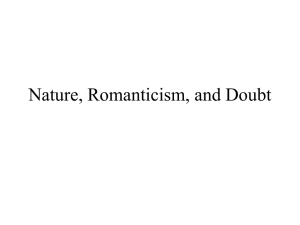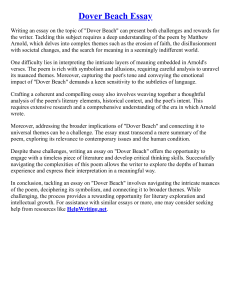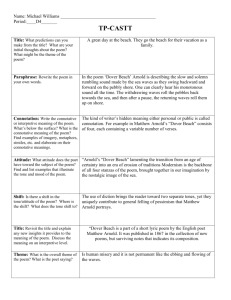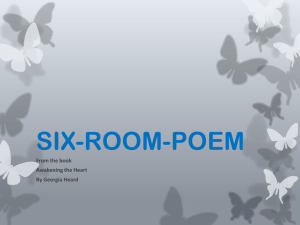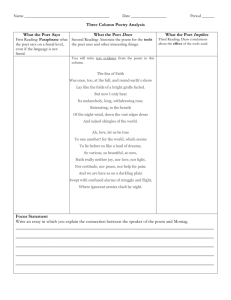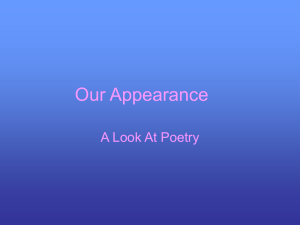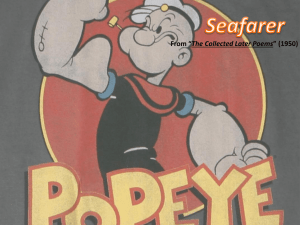Dover Beach
advertisement
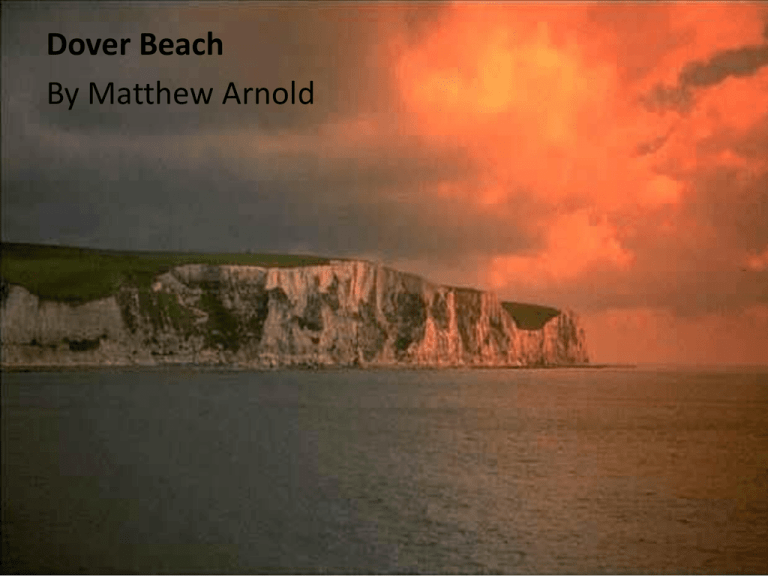
Dover Beach By Matthew Arnold What feelings does this poem evoke? What creates this feeling? Arnold composed this poem in 1851, the year he was married, while on one of two trips to the Dover region of England with his wife. He did not publish the poem until 1867. Charles Darwin released his theory of evolution, The Origin of the Species in 1859 Although he was a believer in God and religion, he was open to—and advocated—an overhaul of traditional religious thinking. In God and the Bible, he wrote: "At the present moment two things about the Christian religion must surely be clear to anybody with eyes in his head. One is, that men cannot do without it; the other, that they cannot do with it as it is." • He describes himself as “Wandering between two worlds, one dead, / The other powerless to be born” (‘Stanzas from the Grande Chartreuse’, ll. 85-86). R. L. Brett, Professor of English at University of Hull, believes that Arnold saw great poetry as “a glass in which men could discern an image of eternal truth…The Bible for him was the supreme example” In an 1869 letter to his mother, he wrote: “ My poems represent, on the whole, the main movement of mind of the last quarter of a century, and thus they will probably have their day as people become conscious to themselves of what that movement of mind is, and interested in the literary productions which reflect it. It might be fairly urged that I have less poetical sentiment than Tennyson and less intellectual vigour and abundance than Browning; yet because I have perhaps more of a fusion of the two than either of them, and have more regularly applied that fusion to the main line of modern development, I am likely enough to have my turn as they have had theirs." G. K. Chesterton said that Arnold was "perhaps the most serious man alive." HW: Reread the poem and respond to the following in your CRJ 1. Knowing some very brief context for this poem, what do you consider to be the poem’s central point? How do the speaker’s descriptions of the ocean work toward making that point? 2. What details of the beach seem related to the ideas in the poem? How is the sea used differently in lines 114 and 21-28? 3. Describe the differences in tone between lines 1-8 and 35-37. What has caused this change? Explain how the language in these lines works to convey their respective tones.
